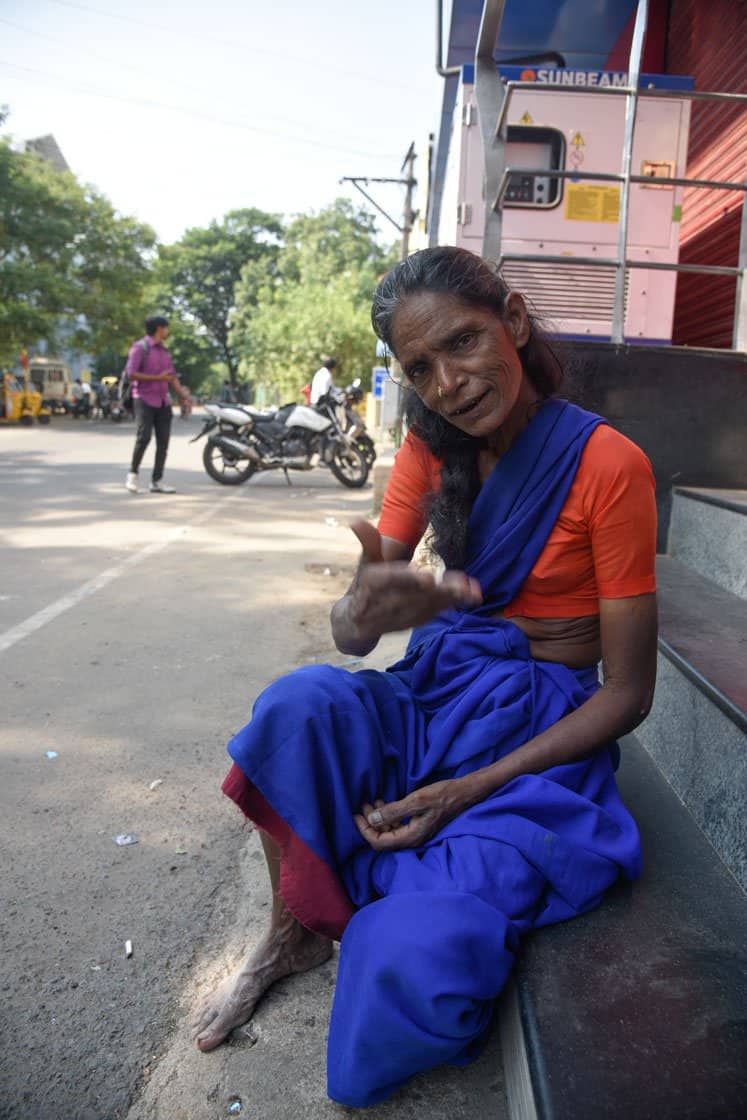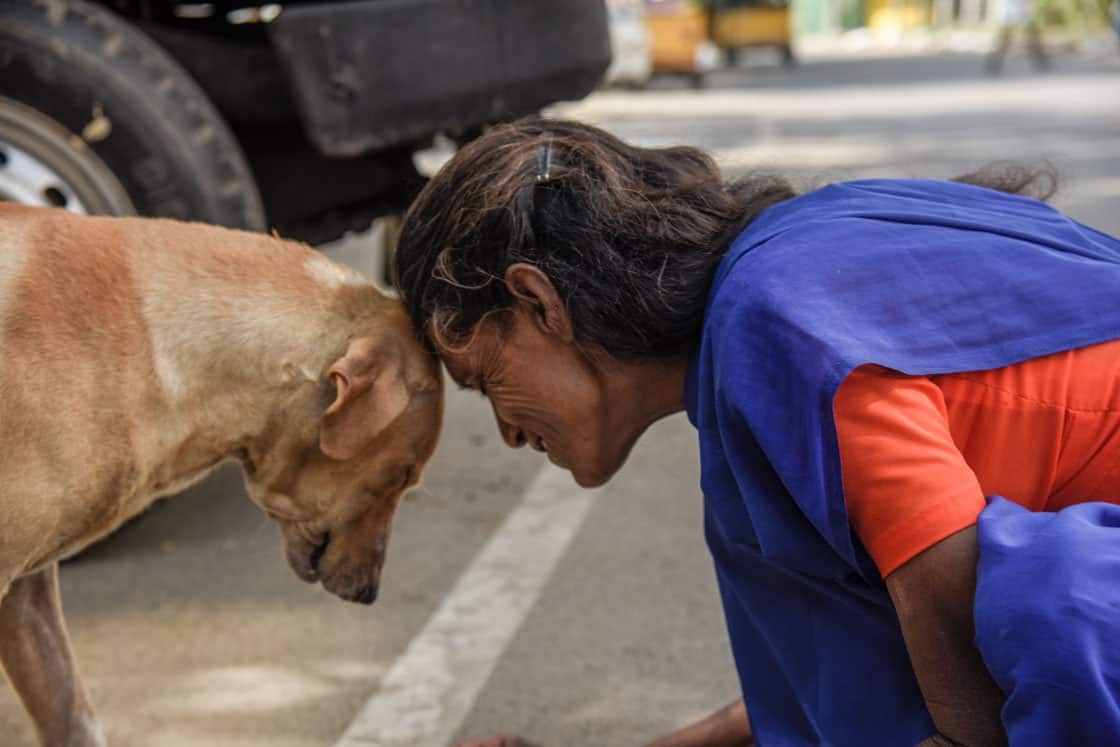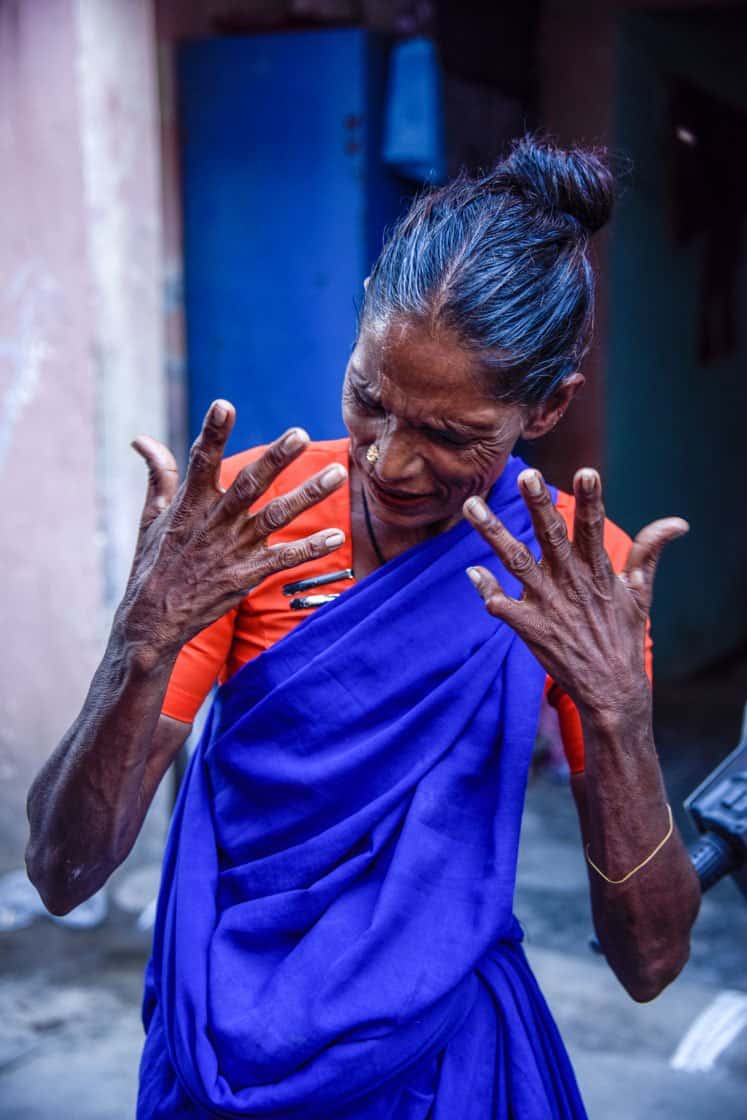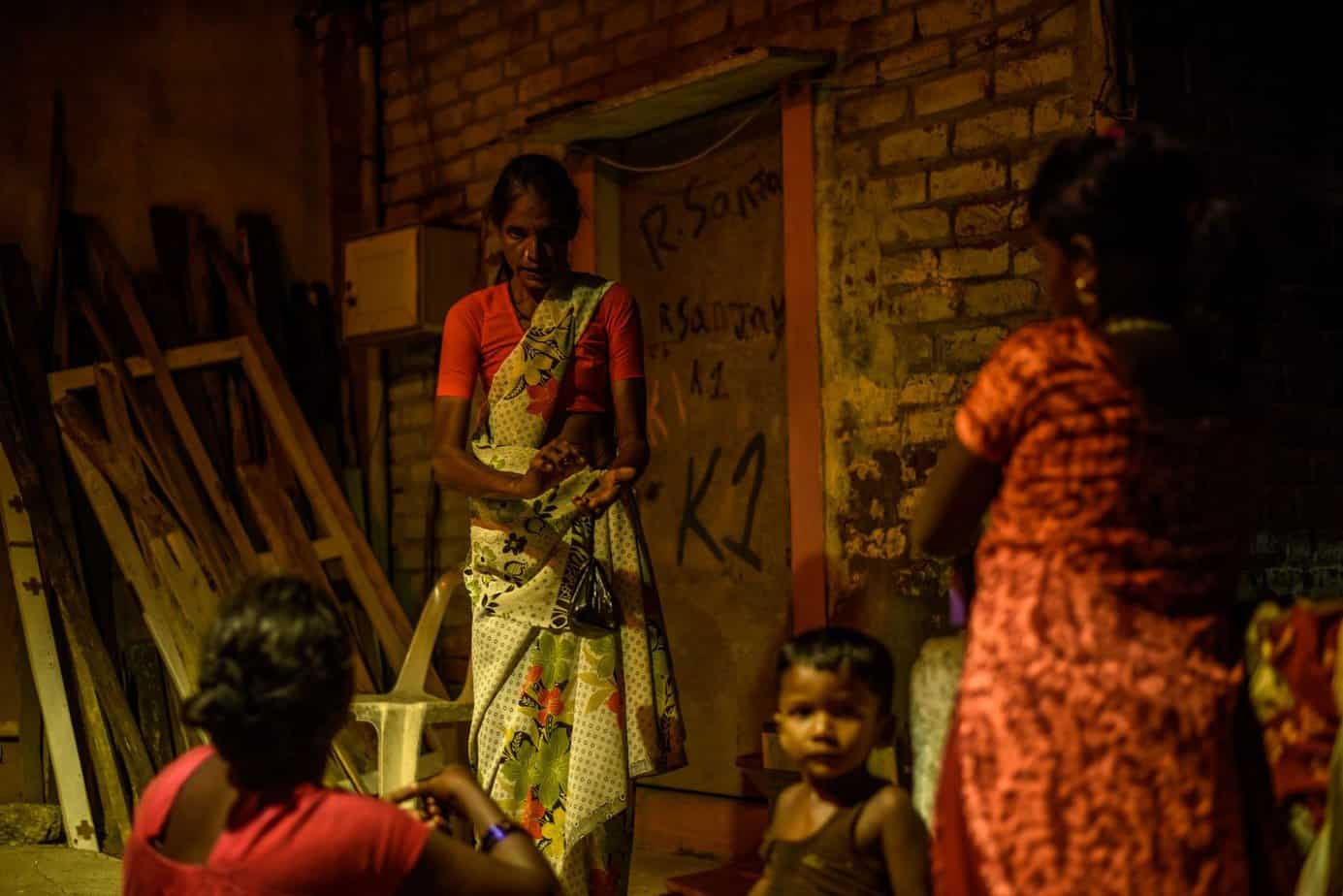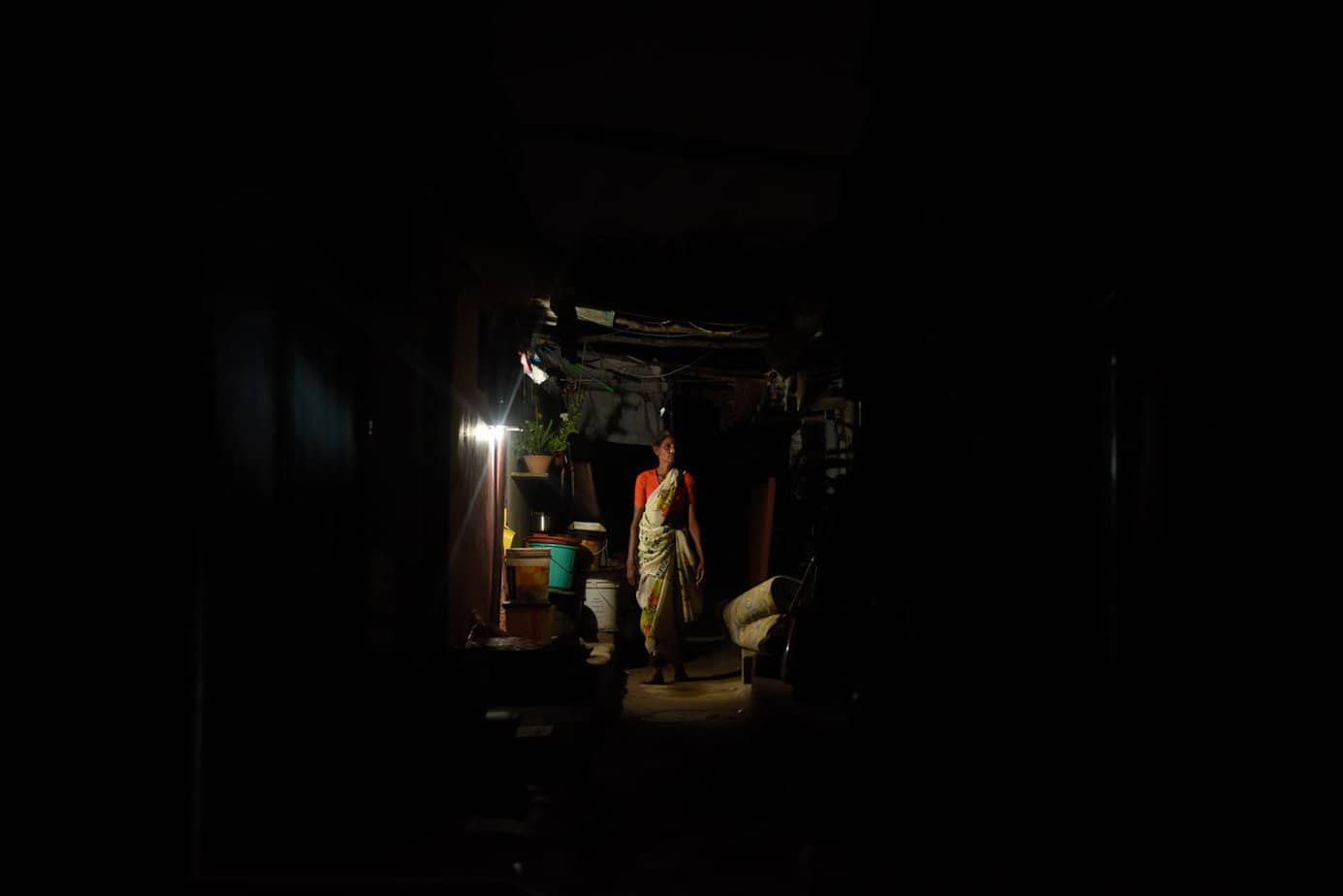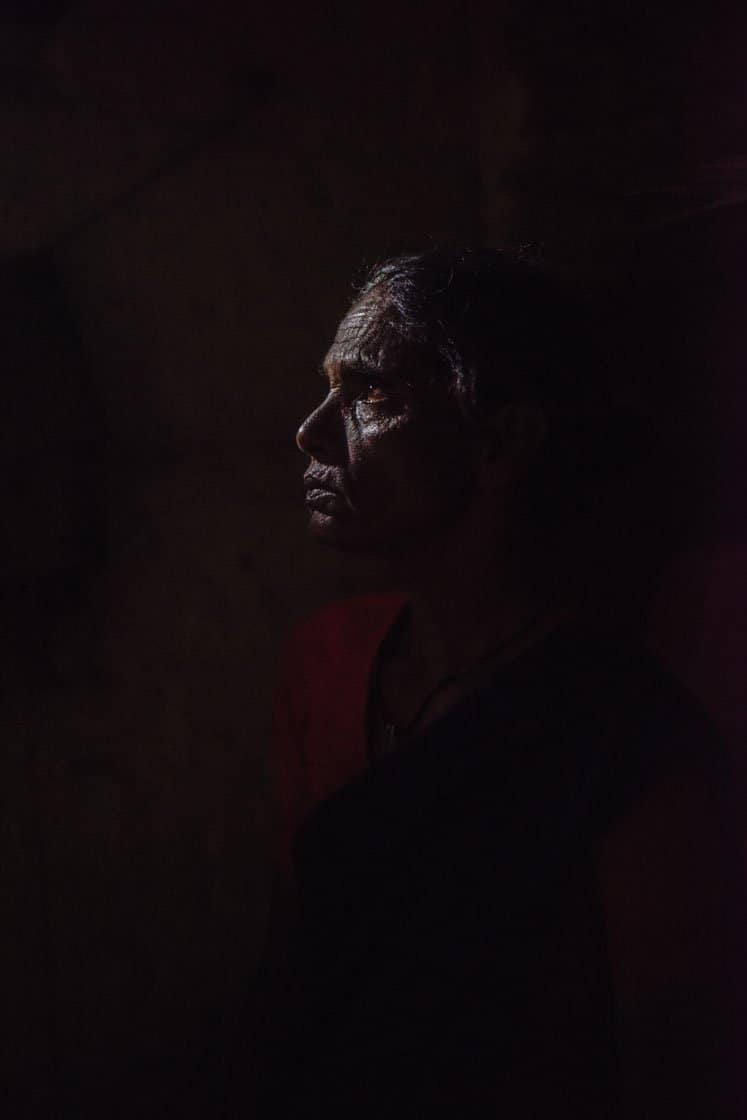Everything about Rita akka is a demonstration of what life strives to teach us – that it has a purpose. The physically challenged sanitation worker (she cannot hear or speak) is a widow, and her daughter, aged 17, has left home to be with her grandmother. The 42-year-old has loneliness writ large on her life, but won’t surrender to it.
Every morning, Rita akka (elder sister) – as she is known in her neighbourhood (though some call her oomachi, a derogatory term for those with speaking disabilities) – wakes up and diligently goes about her garbage collection job with the Chennai Municipal Corporation. Sometimes though, she does complain of physical pain at the end of a hard day. You can see her commitment to the job on the sides of the peculiar cycle-rickshaw trolley she pushes around to carry the waste. Rita has scribbled her name across it thrice – in different colours. At the end of the day, she goes back to her small, lonely home at the housing board quarters in the city’s Kotturpuram locality.
Yet, in between, she has discovered her own purpose in life. After her work and before burying herself in the dinginess of her home, Rita surrounds herself with stray dogs and cats, and spends a great deal of time feeding and talking to them. Every evening on the streets of Kotturpuram, the dogs wait patiently for Rita to finish her work and come to them.
She is originally from a town in Tiruvannamalai (that district had a rural population of close to 80 per cent, notes Census 2011). Rita shifted to Chennai, looking for work with her parents, a little over two decades ago. She has no clear memory of the dates. What she does confirm is that during most of the years since, she did household chores in many homes for a meagre sum. About seven years ago, she joined the Chennai Corporation (now Greater Chennai Corporation) as a contract labourer. Starting with barely Rs. 100 a day, she now earns Rs. 8,000 per month.

Rita akka cannot speak or hear; she communicates through gestures. Pic: M Palani Kumar/ People’s Archive of Rural India

Her smiles are brightest when she is with her dogs. Pic: M Palani Kumar/ People’s Archive of Rural India
Rita sweeps and cleans at least six huge streets of Kotturpuram, using bleaching powder, a broom and a garbage bucket. This she does without any gloves, shoes or protective gear. The trash and litter she collects is deposited in the corporation’s bins located on the streets. From here the corporation’s vans and lorries collect it for recycling. Rita begins work around 8 a.m. and is done with the cleaning by afternoon. She says her sight in one eye was affected in an accident when cleaning the streets. And her legs have developed blisters from walking barefoot. But otherwise, she insists, she is in good health with no major complaints.
A significant part of her earnings goes on buying food for the dogs and cats. Neighbours believe she spends about Rs. 30 a day on them, though she herself will say nothing about it.
Rita’s two daily stopovers before her tryst with the animals are at a small shop to buy biscuits for the dogs, and a meat stall to buy chicken remains for the cats. The remains, called kozhi silra – literally, ‘chicken loose change’, the leftover scraps after the chicken is cleaned and sold – go to customers like her for Rs. 10.
For Rita, the happiness she derives from being with her canine and feline companions far outweighs the expenses she incurs on them.
Her husband passed away years ago –Rita either does not remember when or does not wish to talk about it – and since then, she’s almost always been on her own. Neighbours, though, say he was an alcoholic. Her daughter does visit her, but not often.
Still, Rita’s demeanour remains cheerful – and her smiles are brightest when she’s among her dogs.
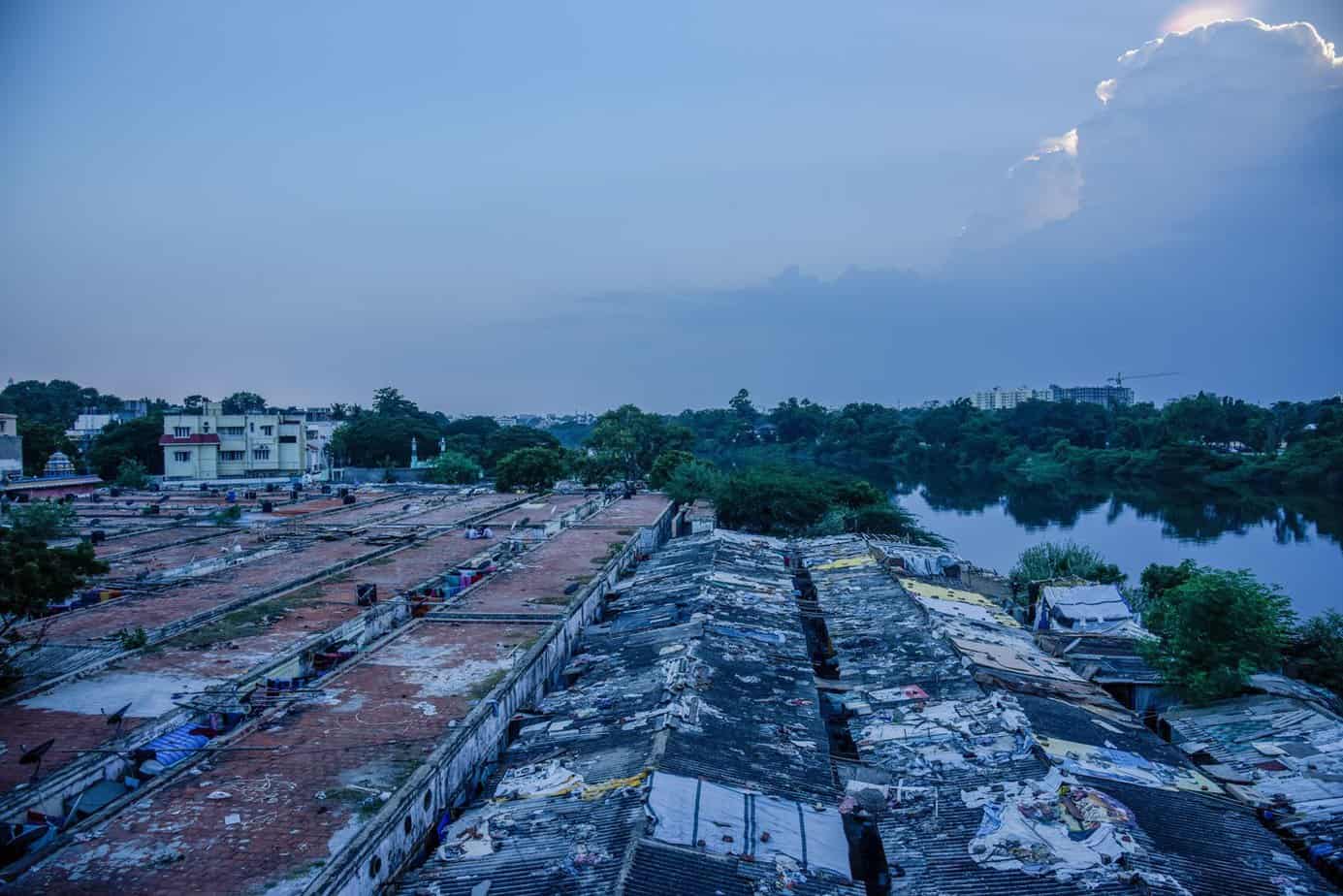
Chennai’s Kotturpuram locality where Rita akka lives. Her small home is in the housing board quarters. She shifted to Chennai from Tiruvannamalai over two decades ago. Pic: M Palani Kumar/ People’s Archive of Rural India
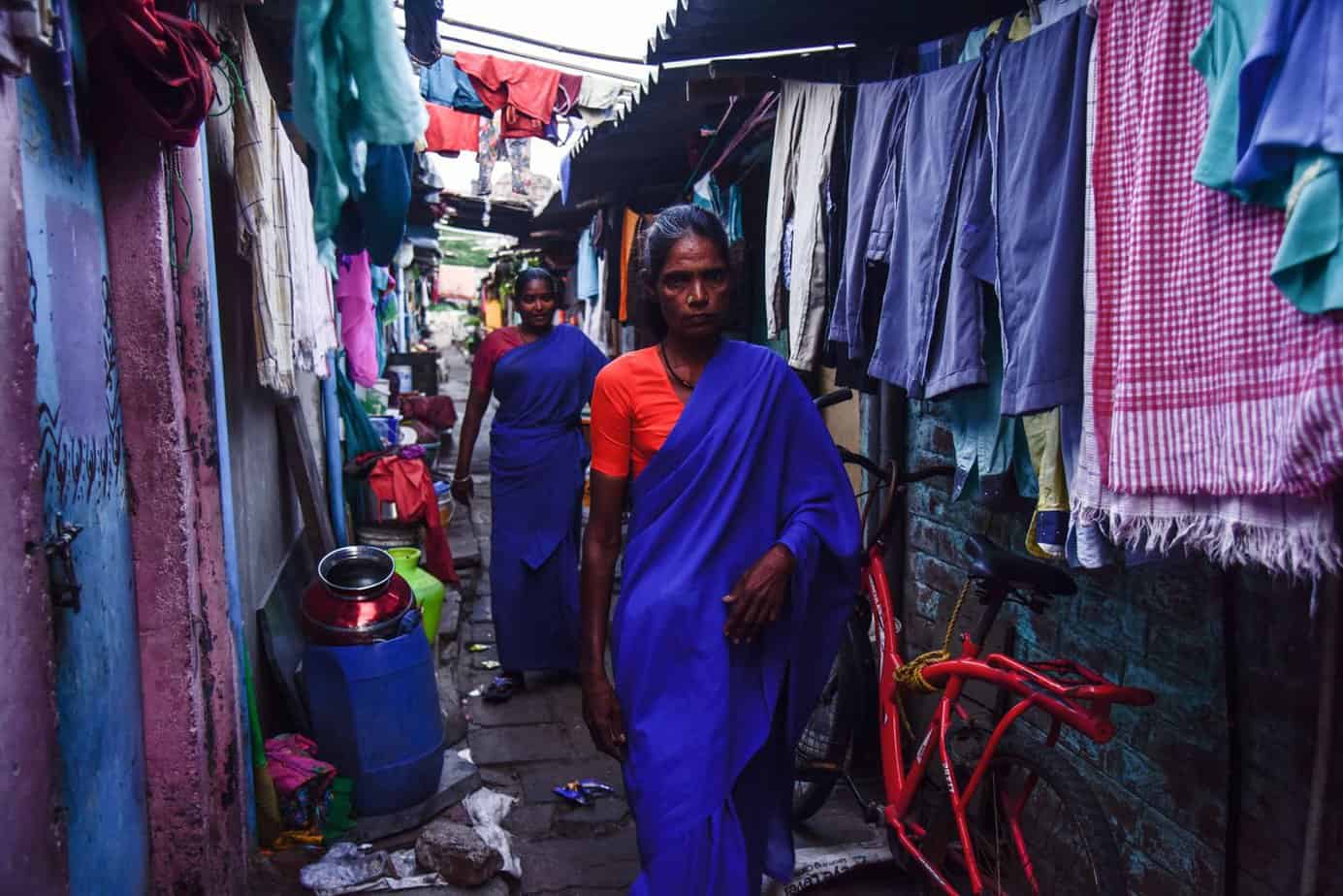
She leaves home wearing her uniform every morning. She is a contract worker with the Greater Chennai Corporation since around seven years. Pic: M Palani Kumar/People’s Archive of Rural India

Rita akka walks towards the wide streets in Kotturpuram where she begins work every morning by 8 a.m. Pic: M Palani Kumar/ People’s Archive of Rural India
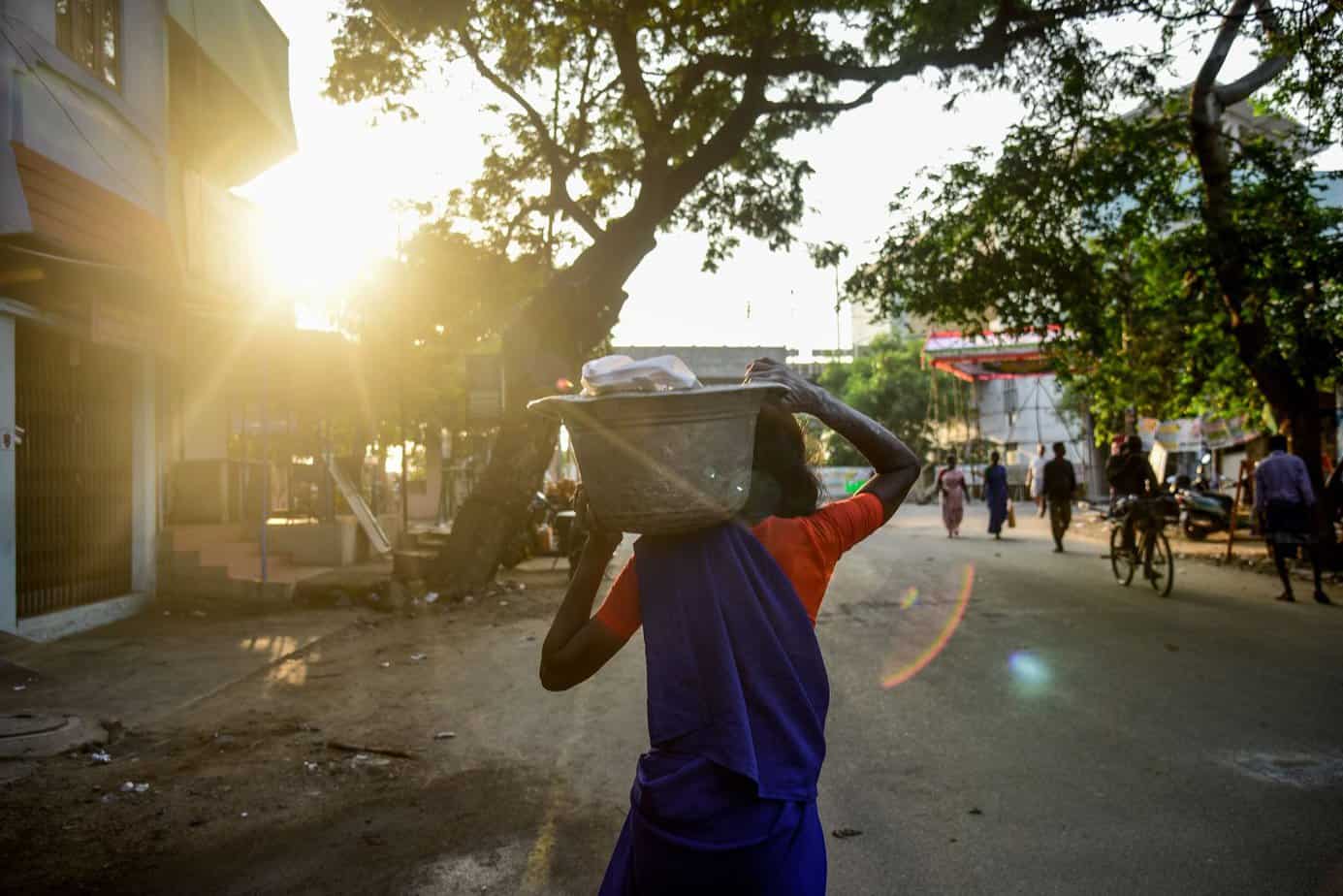
She carries the bleaching powder, for cleaning the streets, in a metal tub. Pic: M Palani Kumar/ People’s Archive of Rural India
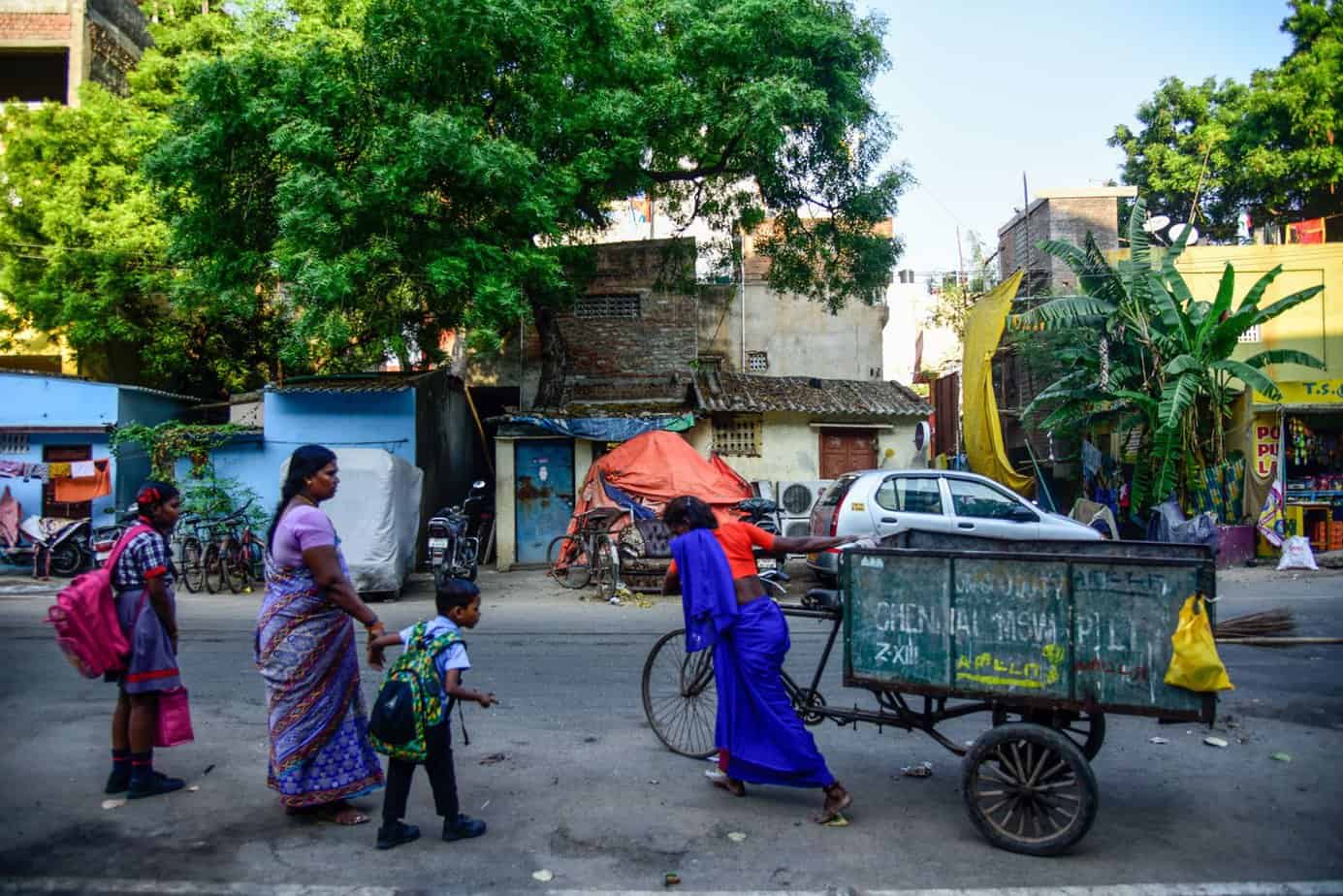
Rita akka deposits the trash and litter she collects in the city corporation’s bins. Pic: M Palani Kumar/ People’s Archive of Rural India
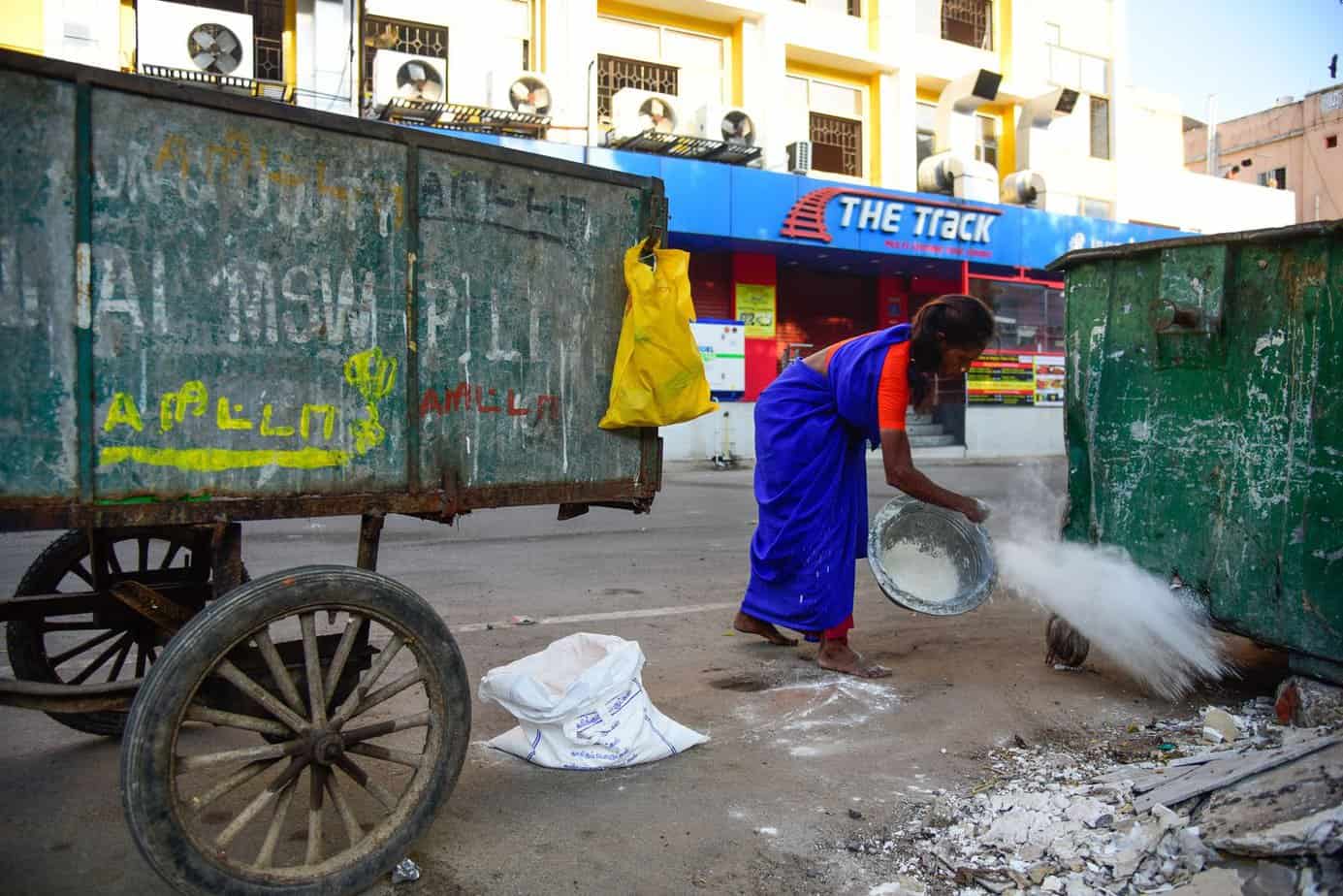
Akka scatters the bleaching powder without any gloves before she begins the cleaning. On the peculiar cycle-rickshaw trolley she pushes around to carry the waste, she has scribbled her name thrice, in different colours. Pic: M Palani Kumar/ People’s Archive of Rural India

The trolley for the trash, which she pushes through the streets, is a damaged three-wheeler cycle. Sometimes, she complains of physical pain at the end of a hard day. Pic: M Palani Kumar/ People’s Archive of Rural India
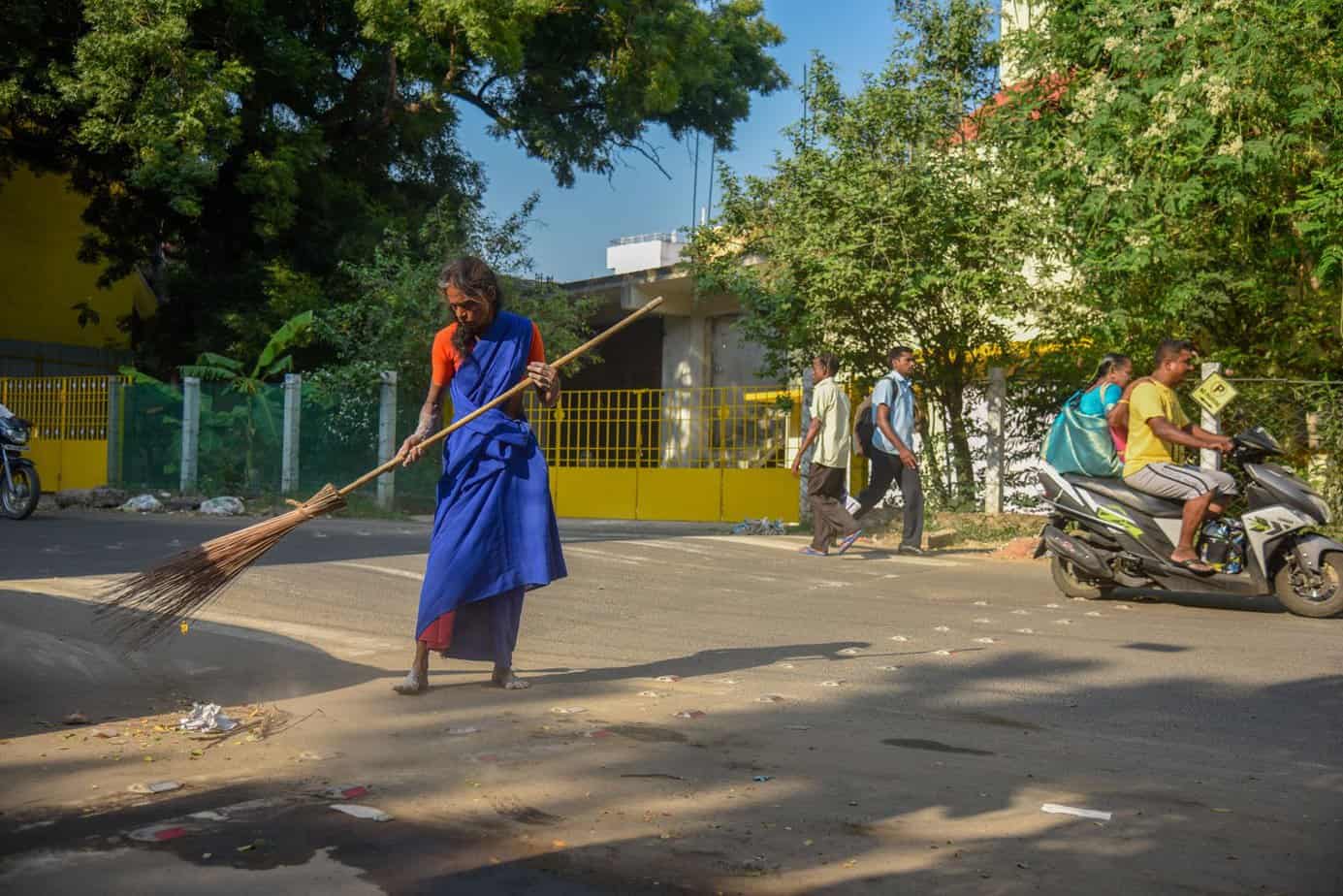
Rita akka sweeps and cleans at least six major streets in Kotturpuram every day. She has no shoes or any other protective gear to do her work. Pic: M Palani Kumar/ People’s Archive of Rural India

Her feet have developed blisters from walking and working barefoot, and her sight in one eye has been affected after an accident when cleaning the streets. Pic: M Palani Kumar/People’s Archive of Rural India
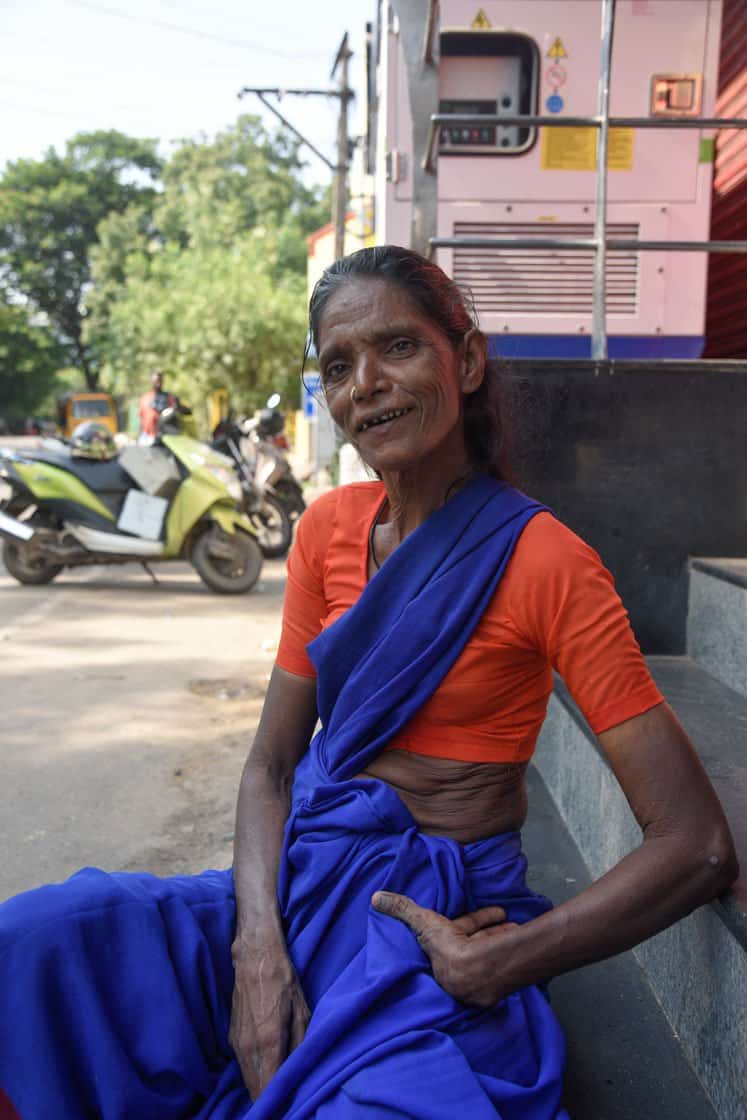
Rita akka responds to a question in gestures, and then flashes a smile. Pic: M Palani Kumar/ People’s Archive of Rural India
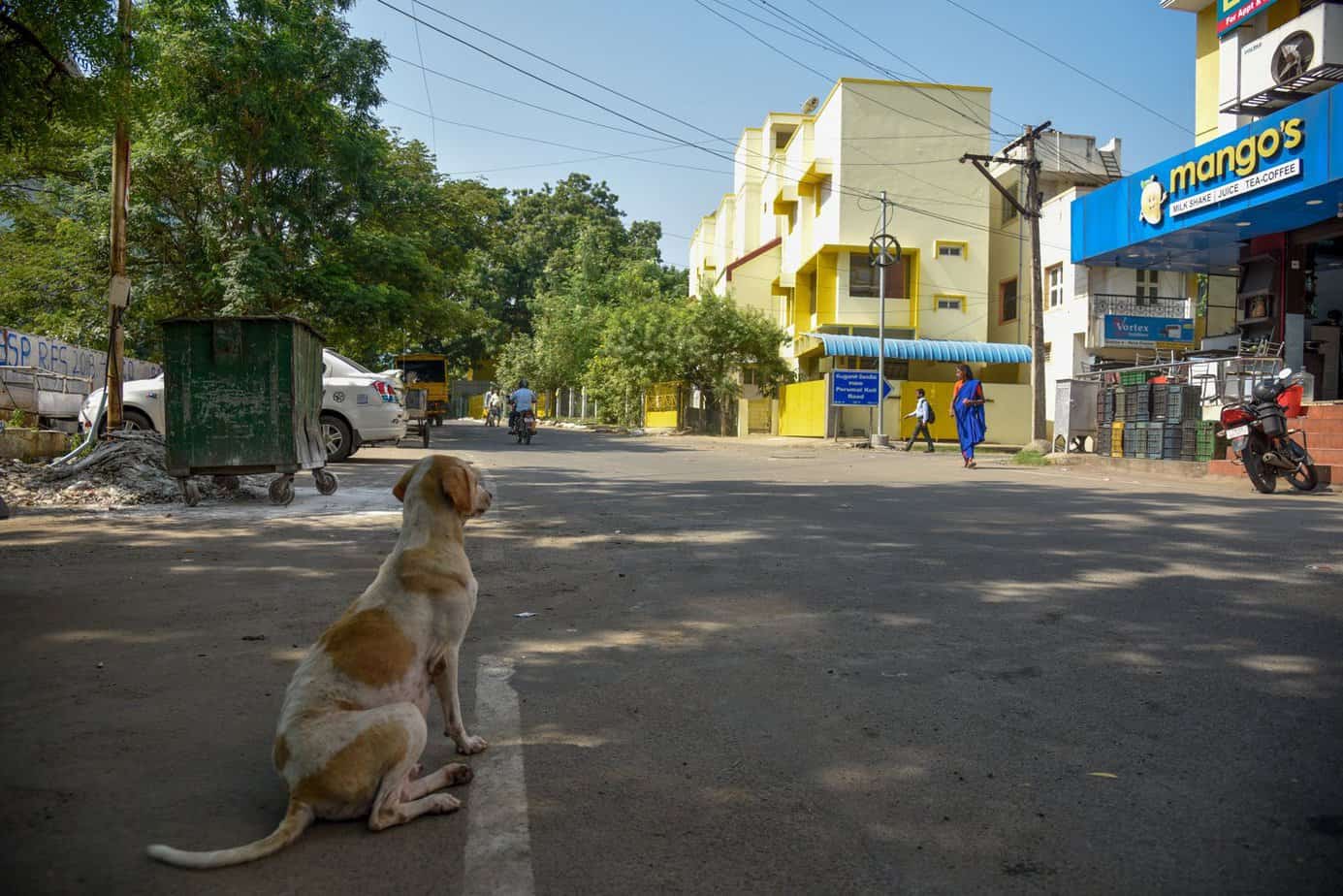
A stray dog, one of Rita’s many canine friends, waits for her every evening to finish her work. Pic: M Palani Kumar/ People’s Archive of Rural India
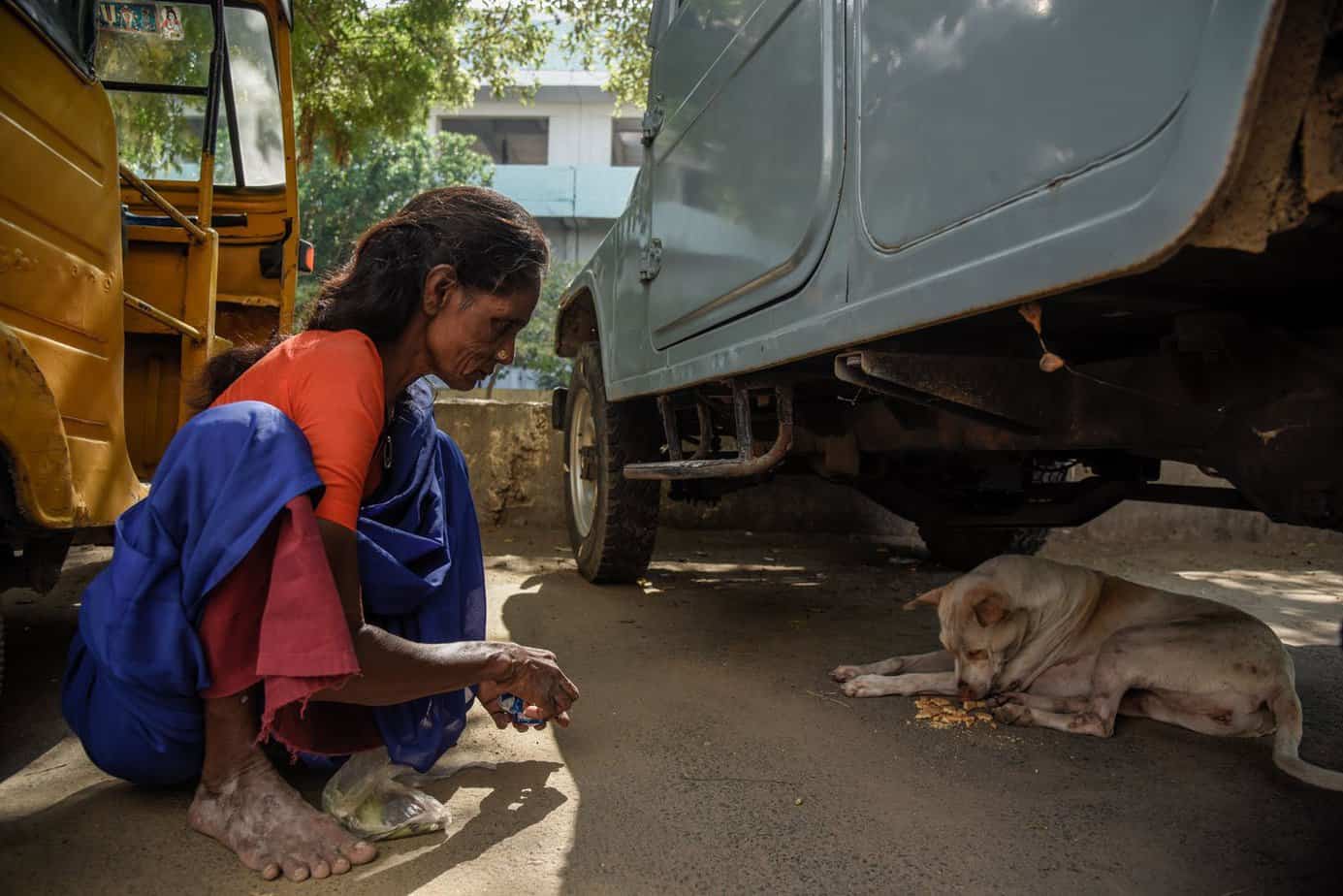
She spends a significant part of her modest earnings on buying food for stray dogs and cats, though she doesn’t communicate much about this. Pic: M Palani Kumar/People’s Archive of Rural India
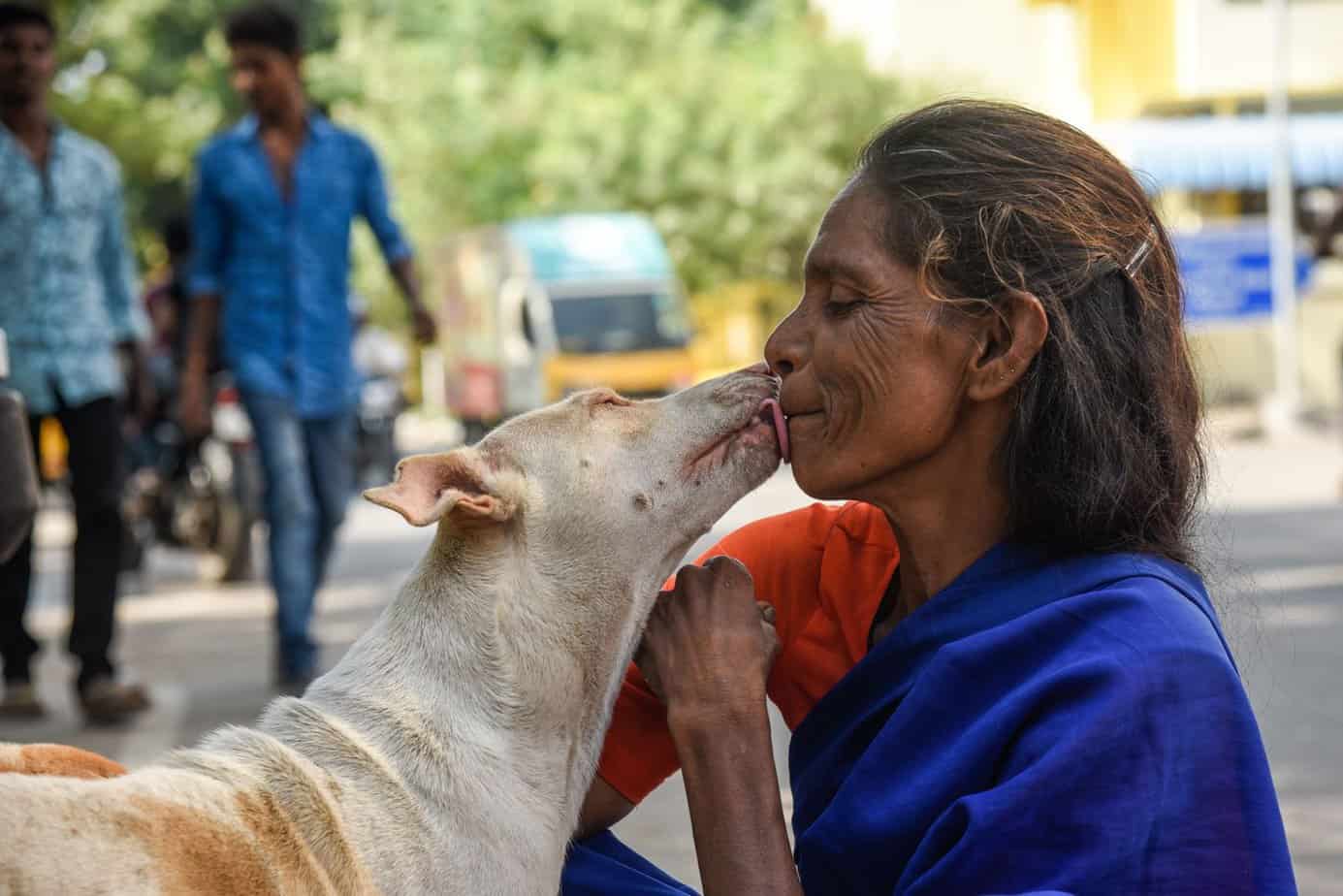
She spends time playing with the stray dogs, and surrounds herself with them, spending a great deal of time ‘talking’ to them. Pic: M Palani Kumar/ People’s Archive of Rural India
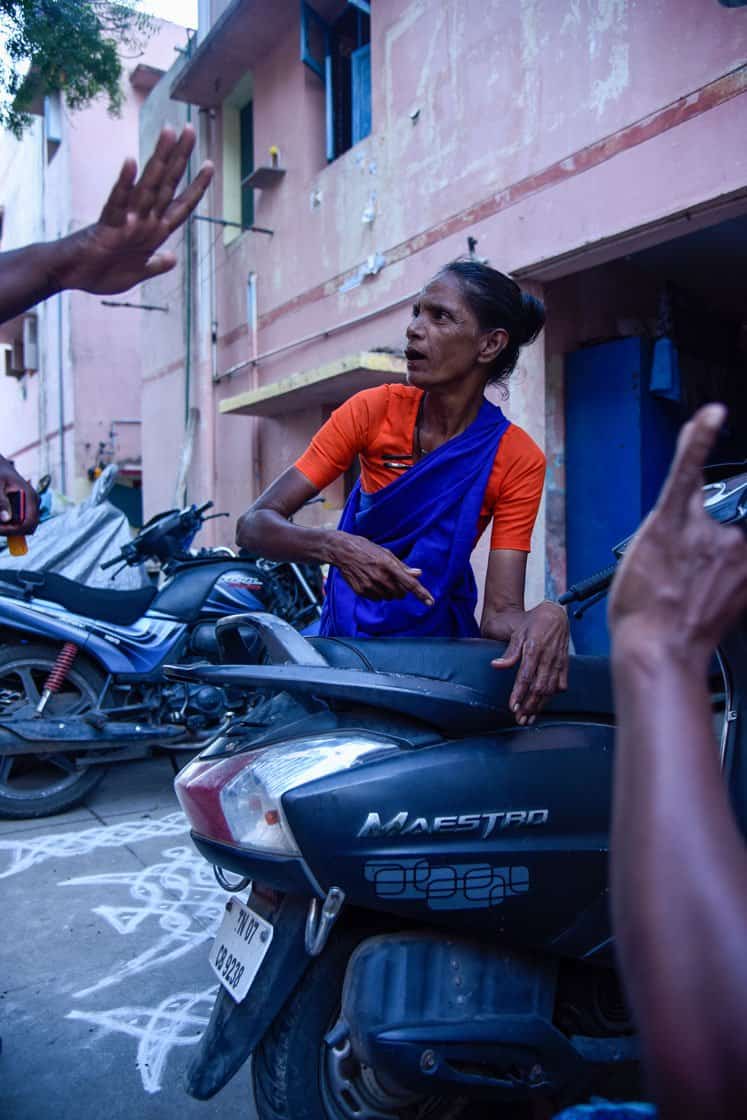
Using her hands and expressions, she communicates what she wants to say. Pic: M Palani Kumar/ People’s Archive of Rural India
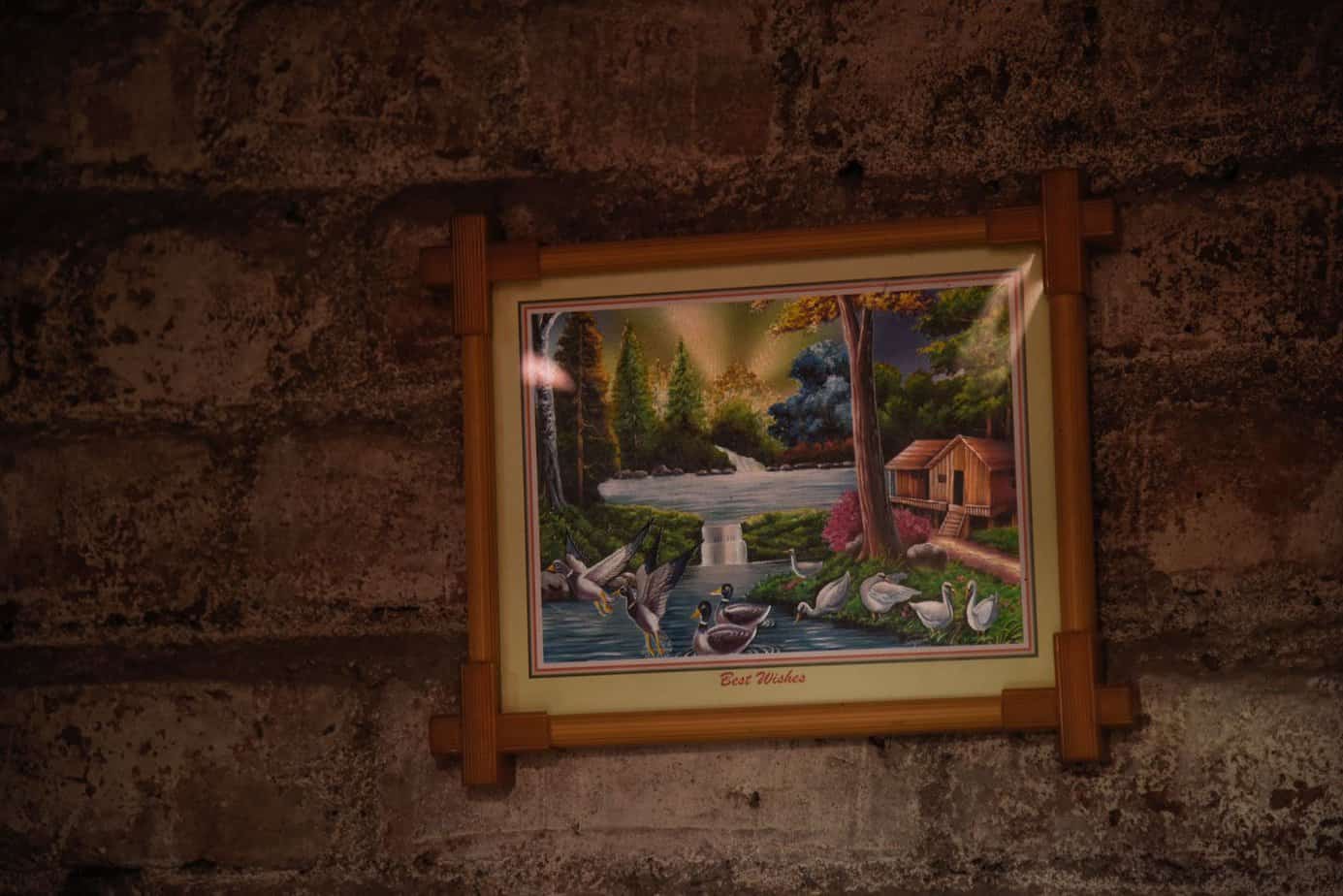
A framed painting adorns Rita akka’s small house, offering ‘best wishes. Pic: M Palani Kumar/People’s Archive of Rural India
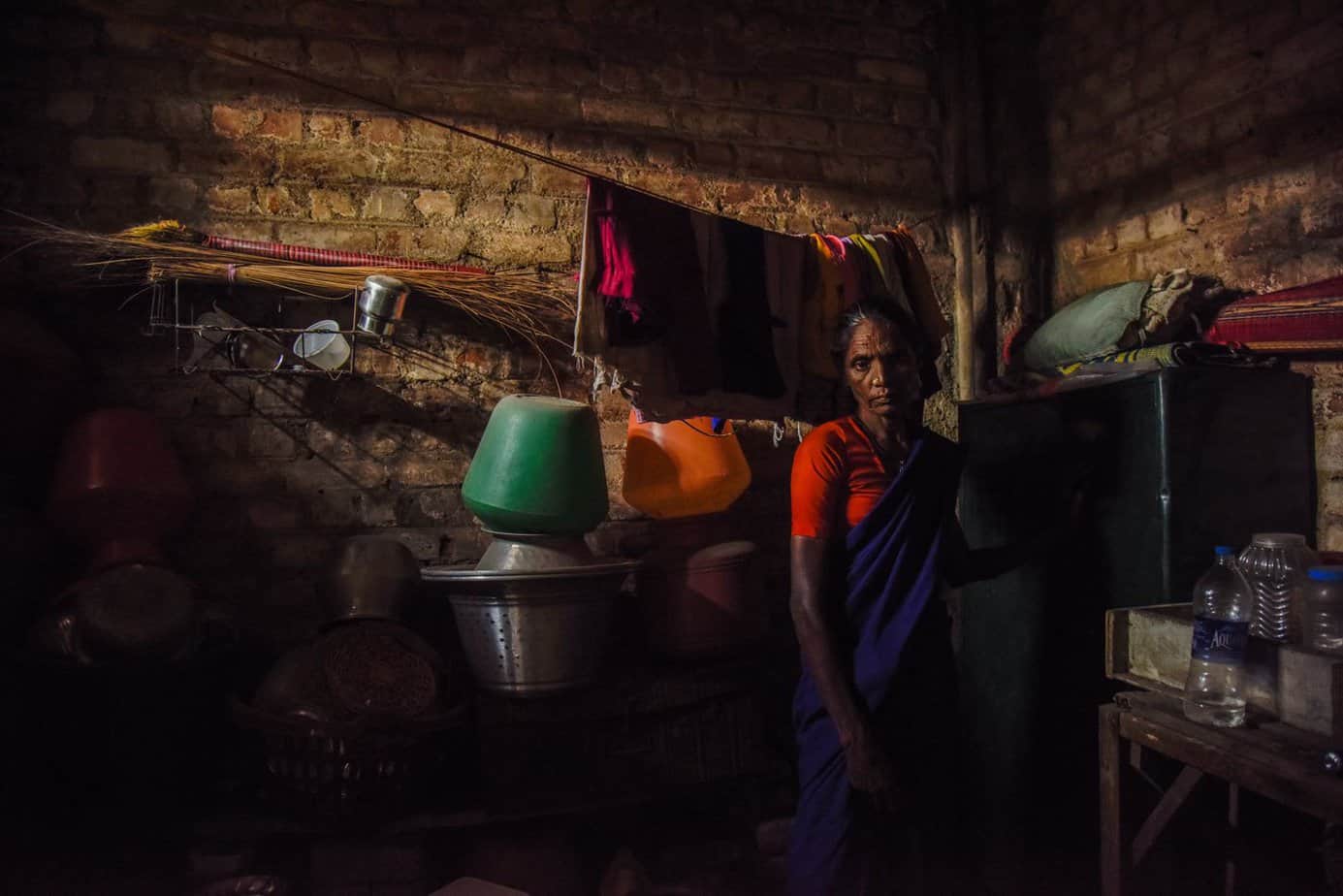
Rita akka in her home. She’s almost on her own since her husband died, but hasn’t surrendered to loneliness. Pic: M Palani Kumar/People’s Archive of Rural India
[ This article was originally published in the People’s Archive of Rural India on March 13, 2020]
